2008/10/01
246. zenbakia

eu es fr en cat gl
Aparecerá un contenido traducido automáticamente. ¿Deseas continuar?
Un contenu traduit automatiquement apparaîtra. Voulez-vous continuer?
An automatically translated content item will be displayed. Do you want to continue?
Apareixerà un contingut traduït automàticament. Vols continuar?
Aparecerá un contido traducido automaticamente. ¿Desexas continuar?
The largest pharmacy is not the best
Text created by automatic translator Elia and has not been subsequently revised by translators.
Elia Elhuyar
Internet is the largest pharmacy in the world. From the most prestigious medicines to exotic treatments. It gives all the facilities to the buyer: it has no schedules, email unique offers to anyone, no one looks at the buyer's face, no one asks personal questions and even with the drugs sold with the recipe, almost never asks for the recipe. Yes, it offers everything… less security.
The largest pharmacy is not the best
01/10/2008 | Galarraga Aiestaran, Ana | Elhuyar Zientzia Komunikazioa
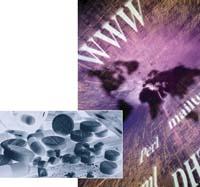
(Photo: A. Hart-Davis; archive)
Two out of three online pharmacies are fake, 95.6% of online pharmacies are illegal, 94% of drug websites don't name a pharmacist and nine out of ten don't ask for prescriptions from the buyer. The European Alliance for Access to Safe Medicines (EAASM) has warned this.
In view of the data, it can be assumed that the purchase of medicines online can pose a risk. And so it is, in extreme cases it can lead to death. For example, just a month ago the young British Selena Walrond died when taking a medicine bought online.
Walrond, 26, bought a banned compound to sell in both the United States and Europe, dinitrophenol, which he allegedly purchased from a Chinese website. Apparently, it was taken by bodybuilders and athletes to lose weight, and the girl also had that goal. However, he took the recommended dose five times and died of a heart attack the next day.
Not all cases are so serious, but according to the study conducted by EAASM, drugs purchased online have no guarantee and can harm the consumer more than benefit.
Research development
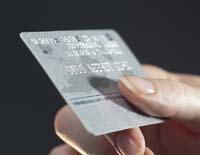
Accessing any medicine over the Internet is very easy. Only money is needed.
Archive
This year the results of the study on drugs sold online have been published. Specifically, the sale of prescription drugs has been investigated. When it comes to publicizing the result, the members of the association have highlighted the aforementioned data, but thanks to the research they have also known much more.
The research sought to answer two questions: on the one hand, from the Internet pharmacies that formed the sample, how many illegally sold prescription drugs, and on the other, what proportion of the drugs sold by online pharmacies are false or of poor quality.
To do this, the first step was to try to buy drugs online. It didn't cost them much to find websites that offered them. Several search engines were enough to write keywords, in English --buy (drug name) online, online pharmacy, cheap pharmacy, online drugs -, to get a lot of websites.
In addition, through the spam messages received in the email were found new drug outlets. In fact, 95% of the messages received in the email are spam, of which a quarter refer to medicines, according to the company Ipswitch, in charge of network and mail security.
In total more than a hundred websites were found. To answer the first question, they investigated one by one and, according to the result, the possibility of finding a place on the Internet where drugs are sold legally and ethically is very limited: only in 9.7% of websites the recipe was requested to the buyer, although it is essential to access the requested medicines. This trade, in addition to illegal, is not ethical for researchers, since sellers do not value the health and well-being of the patient.

In less than one of the 10 websites investigated the recipe was requested from the buyer.
Archive
Moreover, 84.5% of the pharmacies investigated lacked physical direction. Therefore, if any buyer wanted to make a claim, he could not address any site, he would simply have the web address of the web. And it is very common for those addresses to disappear overnight.
Likewise, less than 5% of the websites appeared on the lists of official pharmacies; only 6.2% offered the name and the possibility of contacting a real pharmacist; discounts and special offers appeared on many websites, although they were not accepted...
In view of all this, EAASM has come to the conclusion that, in general, drug sales websites are not reliable.
Second step
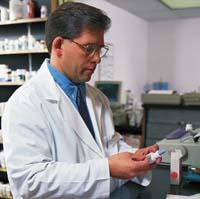
Network pharmacies are very few that offer advice from a pharmacist.
Archive
Despite the danger posed by the uncontrolled disposal of medicines, the absence of guarantees on the product, that is, the veracity and quality of the drug, is even more dangerous. The second part of the research was planned and carried out with the aim of clarifying it.
The researchers took a credit card (MasterCard) and applied for eighteen known drugs at online pharmacies. For the choice of these drugs the list of best-selling drugs in the United States was taken into account. On the other hand, it should be noted that these drugs and other similar ones are those that appear in garbage messages.
Of these 18 drugs, three are intended for the treatment of erective dysfunctions (Cialis, Levitra, Viagra), one to prevent hair loss (Propecia), another to lose weight (Reductil), six to treat respiratory or circulatory diseases (Lipitor, Plavix, Seretide, Verscoyl, Micardis, Prirpriimp, etc. They are all famous and manufactured in well-known laboratories.
Everyone, eighteen, needs a prescription to be able to buy it. However, when researchers made the application on the websites, they had no difficulty buying it without prescriptions. They asked few questions and gave them no advice. In some cases, a simple form on the buyer's health status had to be completed, but they did nothing to verify the answers. In one case they received a call from sellers, warning them that the buyer was a woman and that the product they wanted to buy was for men. The researcher replied that it was for her husband, and the sellers considered it sufficient.
All applications were received, except two. Two types of studies were conducted, one at a glance and the other in a laboratory. For the first, the London Medicines Association brought together twenty-two experts: representatives of patient associations, security specialists, pharmacists, pharmacists, police, an international trade expert... The appearance and contents of the packages were analyzed and, in view of the result, the products received did not seem very reliable.
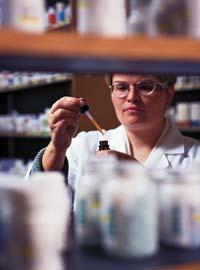
It was sent to laboratories that produce each of the drugs they received online for review.
Archive
Although some medicines had the appearance of authentic, others were wrapped in newspaper and it was evident that the box was false or had no instructions, or the page was written in many languages and had errors, or the pills were in a transparent bag, without other packaging... Yes, in five cases there were some more, gift pills.
To conduct laboratory research, he was sent to the laboratory that makes each drug for study. The aim was to check if they were true, determine the proportion and effectiveness of the active component and analyze the possible loss or degradation of the drug because it was incorrectly collected or stored.
The results of the analysis were not relaxing: 62% of the products were fake or not authorized. This result was almost exclusively adjusted to what was seen by the team of experts, who demonstrated that a medicine accepted by experts was bad in the laboratory. However, anyone who is not an expert would not distinguish the true and false medicine as well.
The remaining 38% were real, made in original laboratories. But 16% of them were illegally imported from the United States, and a third did not have patient instruction sheets.
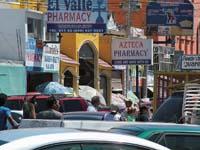
10% of drugs sold in developing countries are fake.
Dystopian Optimist/Some rights reserved
All one
In addition to the EAASM association, other associations and institutions have conducted research on drugs sold online, with similar results. For example, last year the OCU of consumers and users of Spain conducted a study of this type. The sample was smaller, but it was enough to show that websites selling medicines online act illegally and that the products they sold could be very harmful to health.
According to the World Health Organization, half of the drugs that sell physically directed websites are fake. Moreover, in addition to the Internet, 10% of pharmacies sold in developing countries are fake and 1% of those sold in developed countries. This means that 7 million drugs sold last year in Britain and 16 million drugs sold in Germany, for example.
In addition, data from information services show that the illegal drug market has grown exponentially in recent years. In Europe, twice as many fake drugs were seized in 2005 as in 2004 (500,000 products), and in 2006 it was five times more than in the previous year (2.7 million in particular). In 2007 it grew even more and continues to grow.
José Luis Segura, Head of Communication at the Organisation of Consumers and Users of the Basque Country (OECD), says that this market is booming. You cannot know how many people buy drugs online because they are private operations. In addition, Segura speaks of "few complaints" for shame or fear. However, due to the sale of weeds, fake, degraded, expired drugs, placebos and products that have not gone through any control, there are problems, although they do not have specific data.
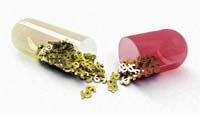
The illegal drug market has grown exponentially in recent years.
B. Elliot
In any case, the CER and other associations and organizations dealing with consumer safety and patient health require that control measures be taken further. The European Union's drug agencies have already formed a Working Group of Enforcement Officers (WGEO) to facilitate collaboration, coordination and exchange of information among all agents involved in the fight against illegal drug production and distribution.
In addition, both the European Union and national administrations have established specific action plans to address this problem. In the meantime, it will be best to follow the recommendations and buy drugs at reliable pharmacies.
Health in danger
Medications sold online can be very harmful to health and even deadly. The EAASM association study reveals that two out of three are false or not authorized. Medicines contain, in addition to the active component, other substances that contribute to their conservation and their effect on the body. However, medicines sold online have many defects:
· There are some that do not have the required dosage and an insufficient number of active components can be as dangerous as the excess.
· They have another active component instead of what they should have.
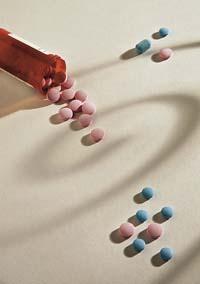
(Photo: Archive)
· No active components.
· Contain toxic components such as paint, wax for steels, bitumen, powder talc, chalk...
· Correct components but degraded by incorrect storage.
· The medication itself has no defect, but the instruction sheet is wrong or does not contain any document.
Related information: "Most complaints are due to slimming products"
Belen Larrañaga is director of the Drug Information Center of the Gipuzkoa Pharmaceutical Association. We have addressed him to find out if the patients here buy many drugs online and if this causes consequences. With these questions we have started the interview.
Here people have a habit of buying medicines online? Do you know about consuming these products that have problems?
No, normally people go to the pharmacy to buy medicines, often to the pharmacy of always. On the other hand, there are few pharmacies that offer their products through the Internet, and those that have website neither sell medicines, but above all dietary and hygienic products. It is therefore very difficult to have problems buying and consuming these products.
However, there are problems, but not for the products purchased in pharmacies here. In the United States, for example, some products that are medicines are sold here as dietary additives, which are also available online; if someone wants to buy them, there is no inconvenience. But neither security.
The problem arises when product safety and consumption is not controlled. For example, melatonin will soon be marketed in the European Union to treat insomnia resulting from jet lag. It is only allowed and sold at the dosage required for your treatment. However, in the United States it has long been on the market and is easily found on the Internet. However, the buyer has no guarantee and in the studies that have been carried out they have verified that the doses are not indicated. This can cause problems, as melatonin can cause harm, even if people consider it otherwise.

Belen Larrañaga, director of the Gipuzkoa Drug Information Center, in her office.
(Photo: A. Galarraga)
Are people who have had problems with medicines bought online? And if so, why medicine kit?
Yes, not many, but some have called us for that reason. For example, when the Viagra boom occurred, we had a call indicating that he bought Viagra and did nothing to him.
However, it is better not to do anything to harm. For example, we received many complaints about creams to treat psoriasis. I do not know where they are bought because they are natural and we have seen that some have high doses of corticosteroids.
Most complaints are due to slimming products. People want miracles and so buy these kinds of products instead of going to the doctor or dietitian. Others, on the contrary, come to the Internet because they know that they will not be able to obtain the product they want legally, because they need a prescription or because they are not sold in pharmacies.
The case of Viagra and the like is different, because going to the doctor is embarrassing to buy online. Finally, they buy skin creams because they do not find a solution to the problem. In fact, for some skin conditions it is difficult to find an effective treatment; in the end there are patients so desperate that they risk testing those sold online.
He said that most complaints are about slimming products. What kind of problems do they cause?

More and more kids try to buy slimming products, even those that are not obese.
(Photo: Archive)
The problem is that these slimming products involve a loss of water and electrolytes. Thus break a balance of an organism. In addition, many have thyroid hormones that can cause hypothyroidism.
The truth is that obesity is a serious problem, but in some cases there may be anorexia or bulimia or similar alteration. That is, not all people looking to buy slimming products are obese. Many, especially the younger ones, want to lose weight even if they don't have a single kilo.
It is a serious problem. For example, last year we conducted a joint campaign with the association of anorexia and bulimia ACABE to attract attention and detect these cases, as more and more children try to buy diuretics or laxatives in pharmacies with the aim of slimming. They come mainly in search of laxatives, since to buy them no prescription is needed. In pharmacies, however, there is control and we focus on detecting these cases. However, on the internet, they can buy whatever they want, without any problems.
What do you think can be done to get people to buy medicines with all the guarantees, without endangering health?
The solution, of course, is education, but that results in the long run. Increased short-term control. The authorities are making efforts, but there is much to do.
I think stricter control is necessary, you also have to control ads. And fines should be harder. And we continue to see the advertising of unsafe products, especially slimming. And yes, sometimes they get fines, but the payment of the fine comes cheap compared to what they earn, so if a harder penalty is not imposed nothing is solved.
Galarraga de Aiestaran, Ana
Services
246
2008
Services
Venezuela
Pharmacology; Medicine; Internet; Ethics
Article
Other















